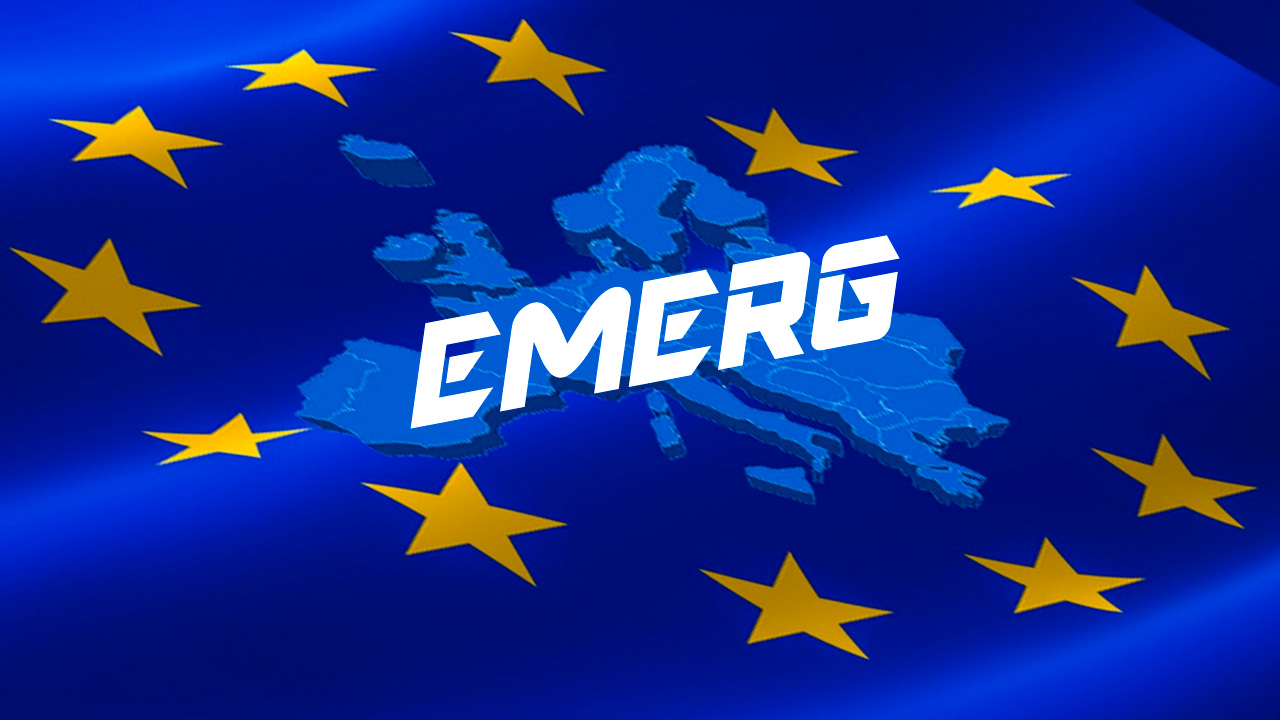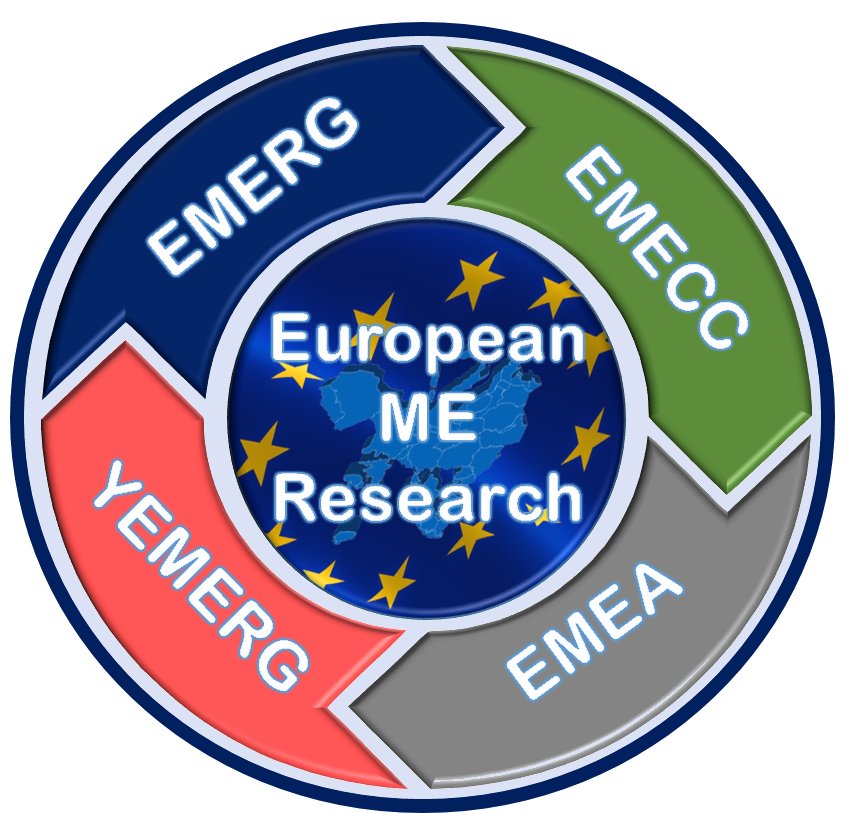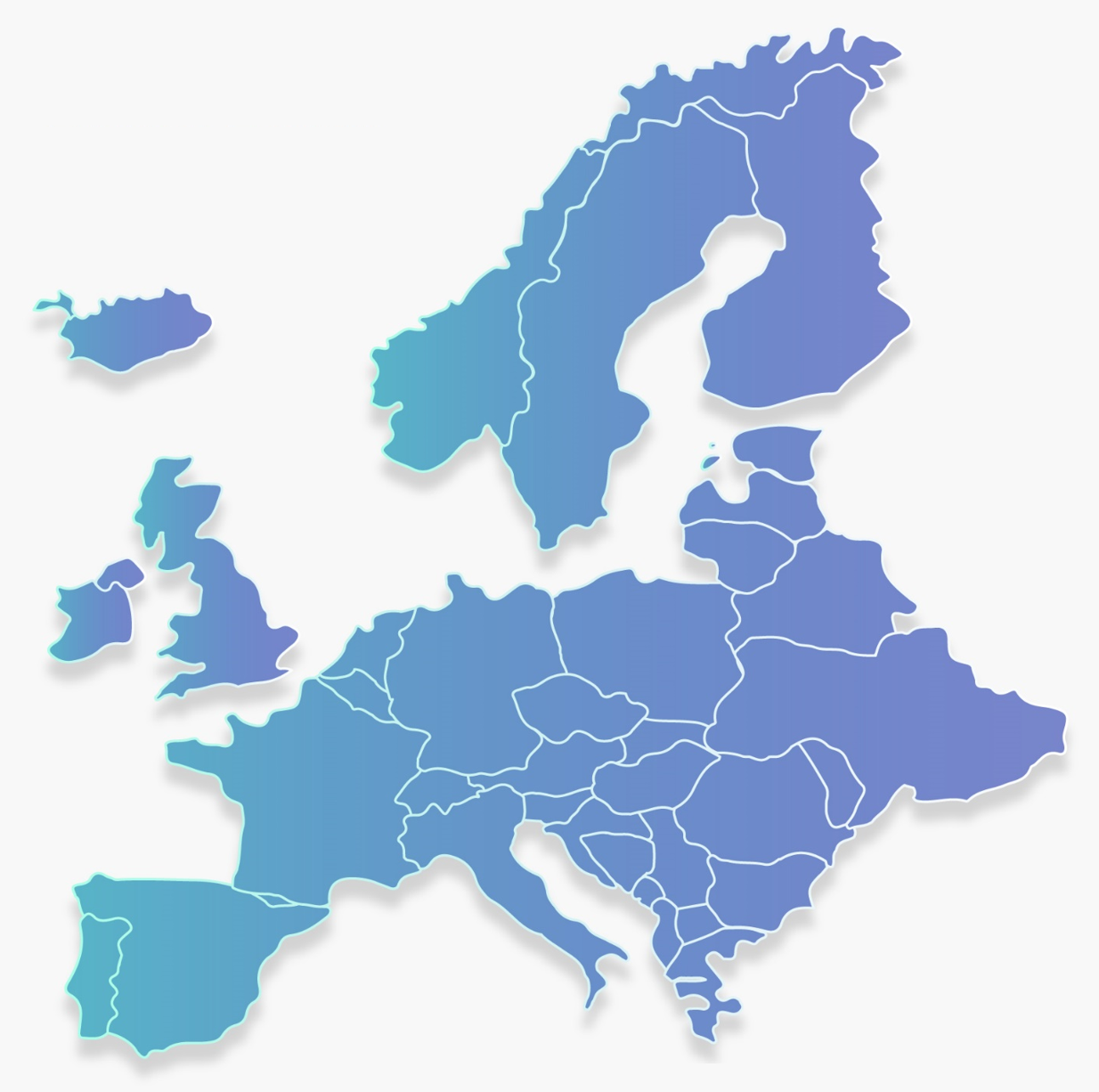European ME Research Group
Developing the foundations for European research into ME
Building a European Strategy of Biomedical Research into ME
The European ME Research Group (EMERG) is a network of European ME researchers and researcher-clinicians who formed to collaborate and share knowledge in research into myalgic encephalomyeltis (ME).
The group is intent on creating a strategy of high-quality, coordinated biomedical research that will
allow accumulation of data based on
collaboration and
sharing of experiences and knowledge.
This
will assist in expanding the capacity of research in Europe
leading to progress in developing a rapid pathway to discovering the cause(s) of,
and treatment(s) for, ME.
In addition the group is interested in creating the infrastructure for joint European research into ME.
Part of this approach includes development of Young EMERG - the Young European ME Research Group - a network
of young and early career researchers who will form the future base of research expertise in Europe.



The development of new research and the accumulation of shared data based on collaboration
and experiences allows more rapid progress in the building of a foundation
of fundamental research into ME in Europe.
The lack of funded and sustained biomedical research means that no one country has applied
sufficient resources to perform research into ME.
By collaborating across Europe the best talents from the best institutions who are intent on working together can be harnessed, as well as increasing the capacity of research being undertaken.
Researchers from the major European institutes who conduct biomedical research into ME are involved in, and welcome to join EMERG and the group collaborates with clinicians in the sister network European ME Clinicians Council (EMECC) and with European ME national patient groups and charities within the European ME Alliance (EMEA) to provide a powerful combination of high-quality research, clinical expertise and patient participation.
EMERG Research
The idea behind EMERG collaboration is to identify areas of research that form a strategy of planned research.
In EMERG the following research is already occurring or planned:-
In Denmark immunological and mitochondrial research is being performed
In Finland sleep and autonomic studies and genome wide studies are being performed.
In Norway genetics research is being performed as well as metabolomics and a clinical trial.
Prospective epidemiological studies are proposed.
In Spain there is research on cell and molecular biology and in Sweden research is in the areas of
imaging and biomarker discovery.
In UK a research programme has been established to understand the links between ME and the population
of microbes that colonise the gut.
A clinical trial will transplant the microbiota from healthy donors into participants with ME.
A Centre of Excellence for ME is firmly established and there is research into causes and mechanism of ME.
In Iceland infrastructure for ME research is being set up.
In the Netherlands major funding has been announced that will include many areas for research using biobanks.
As part of the EMERG strategy
joint research project between different members have been created and applications for funding have been made.

Recent/Upcoming Events
Involving EMERG
A summary of recent and planned events in which EMERG will participate.
These included workshops and conferences.
The expertise of EMERG members means that the group can be a powerful influence when research expertise is required to determine correct
research strategy into ME is required in Europe.
Part of the remit of EMERG will be to provide a strategy of research for ME in order to uncover treatmens and c auses.

